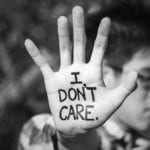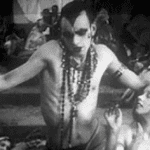 Sport
Sport  Sport
Sport  Animals
Animals 10 Strange Times When Species Evolved Backward
 Facts
Facts Ten Unexpectedly Fascinating Facts About Rain
 Crime
Crime 10 Dark Details of Australia’s Gruesome Unsolved Wanda Murders
 Humans
Humans 10 Unsung Figures Behind Some of History’s Most Famous Journeys
 Animals
Animals 10 Species That Refused to Go Extinct
 Weird Stuff
Weird Stuff 10 Weird Things People Used to Do at New Year’s
 Our World
Our World 10 Archaeological Discoveries of 2025 That Refined History
 Weird Stuff
Weird Stuff 10 Fascinating Facts You Might Not Know About Snow
 Miscellaneous
Miscellaneous Top 10 Things Crypto Was Supposed to Change & What Actually Did
 Sport
Sport The 10 Least Credible Superstars in Professional Sports
 Animals
Animals 10 Strange Times When Species Evolved Backward
 Facts
Facts Ten Unexpectedly Fascinating Facts About Rain
Who's Behind Listverse?

Jamie Frater
Head Editor
Jamie founded Listverse due to an insatiable desire to share fascinating, obscure, and bizarre facts. He has been a guest speaker on numerous national radio and television stations and is a five time published author.
More About Us Crime
Crime 10 Dark Details of Australia’s Gruesome Unsolved Wanda Murders
 Humans
Humans 10 Unsung Figures Behind Some of History’s Most Famous Journeys
 Animals
Animals 10 Species That Refused to Go Extinct
 Weird Stuff
Weird Stuff 10 Weird Things People Used to Do at New Year’s
 Our World
Our World 10 Archaeological Discoveries of 2025 That Refined History
 Weird Stuff
Weird Stuff 10 Fascinating Facts You Might Not Know About Snow
 Miscellaneous
Miscellaneous Top 10 Things Crypto Was Supposed to Change & What Actually Did
7 Reasons for a Failing Society
Every time we read a depressing news story about some animal killing their own kid, some sick person keeping a girl hostage for years, some piece of crap swindling people’s hard-earned retirement, we get a little more skeptical, a little colder and to a large extent, a little less “human.”
It’s not our fault; these events unfortunately and indelibly add themselves to the tapestry that is our lives and take their place amongst other experiences to then determine how we perceive any given situation. So if you spend a lifetime witnessing positive things, you will most likely have a positive perspective. If you are subjected to continuous negative reference, you will inevitably have a darker perspective. We all live between those two extremes, within the shades that exist between light and darkness.
Most of us reading this list have pretty much everything going for them and we should actually be some of the happiest people on Earth. But we are not, and it doesn’t seem to be getting any better. A lot of it comes down to the fact that we have become entitled little brats who expect everything while providing near-to-nothing back. We have lost our sense of accomplishment, of intangible satisfaction for a job well done or for the abstract reward that comes from helping others.
How can we have gone from the “greatest generation” to this entitled one in such a short period of time? Here are some factors that you may want to consider, most of which are unique to our time period and also feed off each other.
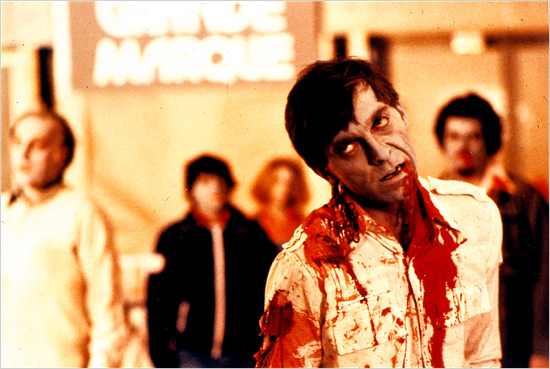
I remember the first time I say Dawn of the Dead (the original), I had great difficulty watching the “flesh eating scenes” without cringing. The first time I saw Reservoir Dogs, I could not get through the cop torture scene in one shot. And of course, Deer Hunter and the words “Didi Mau” resounded in my head for weeks after I first saw it.
Today, I’m pretty much immune to any horrible visual stimuli whether real or fabricated. I am desensitized and so is the rest of society, at varying levels. If you look at the societal impact the Lindbergh baby kidnapping/murder had and compare it to the apathetic perspective we have towards the far worse parental abduction and murders of today, you will clearly understand what I am talking about.
Whether it’s violence in our schools or public venues, an increasing disrespect towards women and children via violent or sick pornography, the reactive thought process and ease with which we start wars, or our seemingly complete lack of empathy towards starving children whose worst crime was not being born at the right time, in the right place, as we were, I truly fear for the next generation and their level of apathy. And with the advent of the Internet, we are indeed like children with a new toy, more interested in playing with it ad nauseam than to take into consideration the potential impact it is having on us, on our society, on our humanity. Ratings seem to take priority over our moral compass and the negative impact it is having on our core and in turn, on our entire perspective of the human equation. And it is only getting worse, since the best ratings come from the worst in humanity, and our inhumanity is what produces what we covet most, money, our one and only true God.
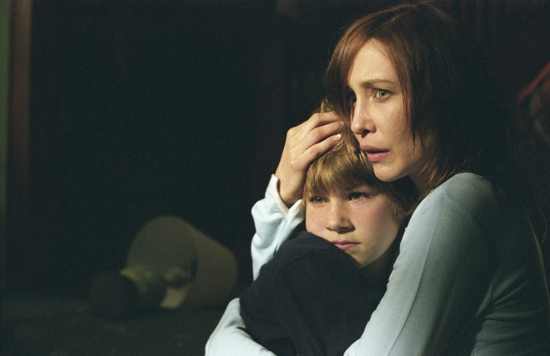
You want to get someone to do something they wouldn’t normally do, scare the crap out of them. Fear is still the main control mechanism being used by the powers that be, although they are now peddled in a variety of disguises. “The war on” is one of the favorite “fear camouflages.” The war on drugs, the war on terrorism, the war on women, on religion, on patriotism, on democracy, and I could go on. If it’s a war, we automatically think that our well-being is at stake. War is too strong a term to be used so lightly, we have no idea what true war is, the true toll it takes. But it is a useful term to evoke an automatic reaction and keep the masses in line.
Other words have become synonymous with fear, you hear them every day. Evil-doers, our teetering economy, threat levels, extremists, pedophiles, drug addicts, etc. If you are scared, you are usually complacent and that’s the way “they” like it. Fear your neighbor, fear your teachers, fear your government, fear the cops, lock your doors and hope you get to live another day.
We are “afraid” we are losing our country, our rights, our jobs, our freedoms but what we should truly be waging war on, if we were to eliminate all these other wars I have mentioned, is simple. Let’s have a war on ignorance which is the source of all fear and we shall make peace with everything around us. Mind you, we will always have some conflict, and fear does serve its purpose from time to time. But we have converted this emotion to a science and it is no longer just a reactive mechanism that forms an essential part of our survival instincts but a control mechanism whose sole goal is to keep the burning fire that is fear and ignorance stoked at all times.
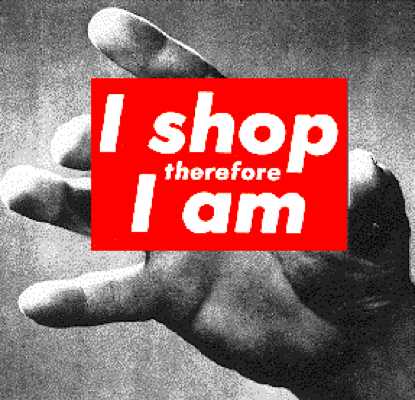
Our self-worth has become synonymous with what we own. If you want to “succeed” in life, you need social status, whether attained by the car you drive, the neighborhood you live in, the phone you use, the shoes you wear, the trips you take. No longer is the quality of our families, our friends, our reputation a measure of a man’s (or woman’s) life, it’s all about what you have and, more importantly it seems, what others don’t have.
I was taking a walk with my 3 year-old son a while back and we came upon a discarded McDonald’s French fry container. Immediately, my son, in a very nice voice I must add, sang the “baba ba ba ba…I’m lovin’ it” tune. Now he doesn’t watch commercials on TV, the children’s channel we subscribe to has none. But somehow, somewhere, he heard that tune enough and also associated it with the McDonald’s logo to create a near Pavlovian response to this completely accidental visual stimulus. That, my friends, is a powerful thing. We truly fail to recognize to what level we are being manipulated. From the moment we can see and hear, we are targeted consumers. And since it is ever present, we just stop paying attention to it. But I guarantee you that they haven’t. It’s so powerful that we don’t think twice about spending 6 bucks on our daily coffee fix knowing, albeit not in a tangible way, that there are people out there starving. I bet you that if by the side of the Starbucks cash register sat a starving little girl, you wouldn’t ignore her the way you do now, at least most of you wouldn’t. But distance permits you to rationalize the situation, as they say, out of sight, out of mind. And they have also taken your empathy into consideration, allowing you to help by sponsoring a child, only a few bucks a month, right? Or maybe sending money to some far away charity, or giving to Unicef at Halloween. Nice little man-made coping mechanisms. Although these don’t even come close to addressing the true issue of starvation and poverty in a resource rich society, it’s just enough to make us feel better about ourselves and continue being good little consumers, buying products manufactured by the very people we choose to ignore.
Another by-product of this reality is that we now only seem to appreciate the true value of relationships and people over things once they start disappearing – a lesson usually learned when it’s too late. Or when we are on our death bed reviewing our lives, our priorities, our decisions, only then do we regret. They let us arrive at those conclusions because at this “final” stage, our roles and value as consumers is at its end. Trust me however, if they could market the afterlife to you, they absolutely would. But religion already has monopoly over that industry so they must be content with what they got: the living years.

The last 50 years has seen more technological advances than the last 5000 and it’s growing at an exponential rate. Since the first goal of new technology is profit, we don’t take into consideration the potential short and long term impact that new technology can have, only its immediate potential for profitability. How often have we realized the negative impact of new technology only after it’s too late? How often have we known about the potential harm any one new product could cause and still went ahead with its release?
Our social structure is also being drastically changed, in some ways a blessing, in others a curse, but regardless, our need to capitalize seems to always outweigh our need to assess the potential risk of these technological leaps and bounds. How is this affecting our ability to properly communicate, in a world where texting has replaced live interaction? How will this affect our ability to socialize in a real world environment, to understand our fellow man, our close and distant neighbors? Our ability to effectively communicate seems to be digressing in the name of an easier, less evasive form of communication. But, as long as people keeping upgrading their phones, their browsers, their FB status, nobody seems to want to find out about the potential harm technology is having on our society and ability to truly understand each other. There’s just no money in it.
A perfect example of technology run amok are nuclear weapons. Yes, I do understand that it ended a terrible war far sooner than by conventional means and potentially saved millions of lives. But we have lived under the nuclear threat ever since and we could easily become an extinct species because of it. If we knew back then what we know now, about dirty bombs, terrorism, rogue states, the fall of the Soviet Union and its inability to control all of their nukes, would we have ever created a device capable of wiping out everything and everyone? We are the first humans to have the potential of completely annihilating ourselves, is that something to be proud of? Didn’t we know enough about the variances of human behavior to see this coming?

Ahh religion, the mother of all sources of misinformation, often created from ignorance and expanded through fear and intolerance.
However, it did also provide as a conduit for our moral education (10 commandments and such) so by the time I finished school, I knew and understood why I needed to treat others as I wanted them to treat me, etc., etc. Mind you I say it was a conduit, one of many that could have achieved the same goal without the baggage inherent to any religious belief.
Now, in my country, religion is morphing into philosophy, where it belongs. Our government prohibits the teaching of religion in our public school system. This created a temporary gap in our moral education since we had always relied on schooling or the church to provide it.
My sons are now obliged to take a “religion and ethics” course which teaches them about all religions without focusing on any one in particular. They examine deities, religious culture, traditions, clothing, symbols, etc. This goes a long way to eliminate ignorance which fosters tolerance between varying groups of people. The course also provides moral guidelines we should all respect in a civilized society better than religion ever could because no one is excluded, no matter your beliefs or lack thereof.
I am always amazed that religious people believe that without religion, people would have no moral compass, no rudder, no reason to be kind to their fellow man. As if religion was necessary for people to come to the conclusion that it is in their own best interest to be good to one another, to live peacefully within a tolerant and accepting society. Religion differentiates us from each other when the truth is that we are all indeed the same. Religion asks us to forsake a value system that would go to improve everyone’s life in the name of one that promises reward in a non-existent afterlife. Most of us have evolved to a point where skin color, physical appearance, disability, language, culture, geographical location makes us no different from one another. Religion is the last hurdle of our species infancy and we seem to be indeed shedding our old superstitious skin.
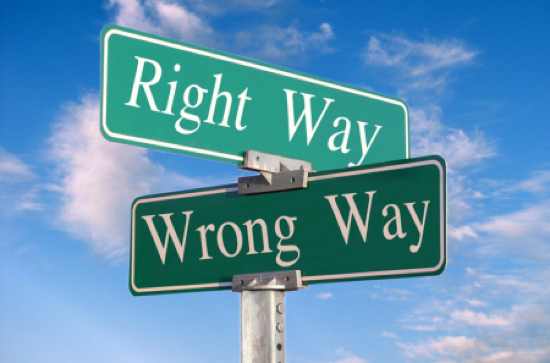
The mother of all fears, it makes us slow down to gawk at a car accident, it provides high ratings on the news all because it’s a glimpse of what is to come and what we, no matter how smart or wealthy, cannot control. It’s on our minds, religious or not and it’s barreling down towards us at Mach speed, or so we are led to believe. But it isn’t, not that fast anyway. Spend one hour with my mother-in-law and you will realize just how much time we really got. Fear of death is the main power that fuels religion, consumerism, technology, etc. Sometimes, death is expected but most of the time, it’s not and we, as a self-aware species, do not like that. So we adopt coping mechanisms designed to offset our thoughts of mortality by either making efforts to extend our lifespan or, by eliminating mortality all together, by creating the concept of an afterlife, the “carrot” of our religious foundations.
It has become such a prominent obsession that we forget to enjoy the time we do have, a realization that is commonly made only when it’s too late. It’s kind of funny that we are so obsessed with the one thing we really have no control over. A normal human reaction, yes, but one that can be tempered by recognizing the value of the life we have as opposed to focusing strictly on the potential finality of our impending demise.
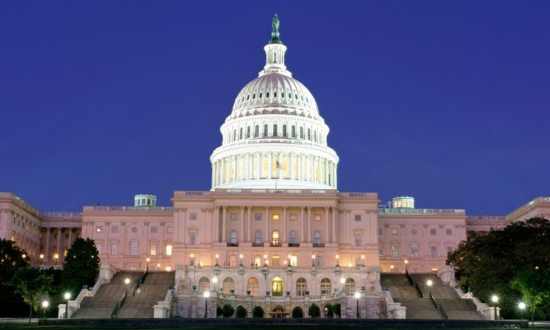
To a human being and most animals, belonging is as important as air and water. Whether we are part of a sports team (fan or player), a scout troop, a religion or a political party, it feels good to be surrounded by people who share the same interests and values as you. Politics have taken that need and made it an absolute. You are either with us or against us, liberal or conservative. There is no middle ground to politics anymore since the outcome of any election will have a tremendous impact on every point mentioned thus far. Corporate donations, lobbyist, religious leaders, the media are all directly affected by the results of a political campaign. The essence of politics, the reason for democracy has all but disappeared.
I remember the first time I read the Constitution of the United States and being amazed at how these folks who had access to so little information, could understand human behavior so well as to redact such a masterpiece. I am equally amazed at how we, with our access to information, have regressed in our ability to provide citizens with the protections and opportunities they deserve, regardless of race, creed, religion or political perspective.
Politics has morphed into a struggle for power through misinformation, fear and intimidation. But what is far worse is our acceptance of it as if it was the way it should be, too afraid to speak out, too scared to rock the boat, to intimidated to do anything but pick a team or lose interest all together. The US has never been so polarized, a term that basically means, in this particular instance, that emotions have more control over opinions than common sense. The essence of true government representation has all but disappeared in the name of those special interest groups that help elect those representatives that favor their agenda. But we accept it; we play the game, pick a side and hold the line no matter what, at the expense of true progress.
And in a way, that is also exactly what we want. And by WE, I do not mean the Power Brokers “du jour” or the elected officials or the media moguls. WE is any of us who has been exposed to and became a victim of fear, pain, hatred or power for any human can and will eventually succumbs to those influences. And this is why we have a charter of rights, a constitution and the laws governing our countries. This is why no one person or entity should be able to weaken the pillars of our intellectual evolution. This is why we must realize we are all really two people, the person and the citizen. And as entitled as we are as a species, it is by being both people that we realize that the only true way to be safe and content is by allowing others the same opportunities, the same quality of life, regardless of their geographical location, religious beliefs or political disposition.
In conclusion, Understanding these mitigating influences allows a person to become what I term as “self-aware,” meaning that they are able to see the big picture and recognize the aforementioned influences for what they really are as opposed to accepting them as “gospel.” And only by shedding those self-serving influences can we really understand the true potential of mankind and evolve further as a species.
